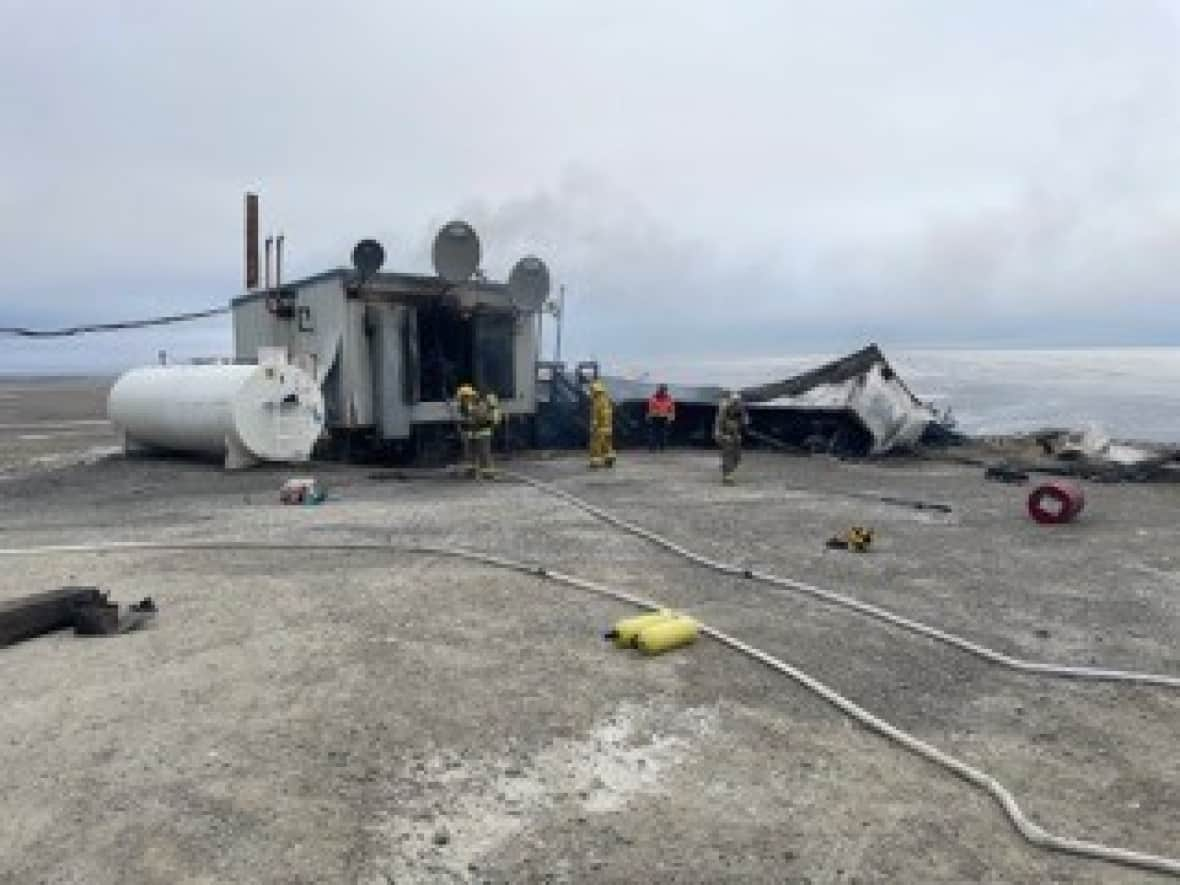Nunavut RCMP investigating fire at High Arctic observatory

The RCMP is investigating a fire that heavily damaged an observatory near Resolute Bay, Nunavut, on Tuesday morning.
Police said in a release today that they have identified two suspects in connection with the fire.
Shortly after 7 a.m. on Tuesday, members of the Resolute Bay RCMP detachment responded to the fire at the observatory, about 6.5 kilometres northeast of the community.
The building was not occupied at the time and there were no reported injuries, the RCMP release said.
The living quarters were a "total loss," police said.
The building that houses the facility's generator suffered damage from smoke and water.
The 1MW generator powered two radar panels, which are now offline.
"The loss value is still to be determined but is considerable," police said.
A fire investigator from the Government of Nunavut is en route to Resolute Bay to determine the origin and cause of the fire, police said.

The Resolute Bay Geomagnetic Observatory was established in 1948.
A United States National Science Foundation research station, it's operated by SRI International, according to information on the University of Calgary's website on space science in the High Arctic.
The observatory is home to NSF's Resolute Bay Incoherent Scatter Radar – North (RISR-N) and the University of Calgary's RISR-C (Canada) radar.
The twin radars point in opposite directions, RISR-N to the north and RISR-C to the south.
The two provide information about Earth's space environment.
"This information is key to studying the coupling between our space environment and the upper atmosphere," according to the university website.
Eric Donovan is the project's team leader with the University of Calgary.
"While UCalgary does not own the building, we own some of the research equipment inside the structure and are currently working with RCMP to learn more and assess the damage," he said.
RISR-C is funded by the Canada Foundation for Innovation and led by the University of Calgary's Auroral Imaging Group, in partnership with UCalgary Geomatic Engineering, the University of Saskatchewan, Athabasca University and SRI International.


